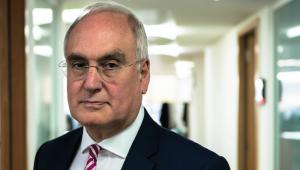Matt Hancock said the software platform for digital assets had “real potential” to transform government services, at a Law Society event yesterday.
“Blockchain technology holds real potential to make government services more efficient. Its multi-faceted nature means we all stand to benefit,” he said.
“This technology could help us solve some of the great global social challenges of our time.”
He added: “There is wide interest across government in deploying blockchain to tackle a wide range of issues.”
Hancock named the Department for Environment, Food & Rural Affairs, the Ministry of Justice, the Department for International Development, HM Revenue & Customs and the Department for Business, Energy & Industrial Strategy as among those interested.
Blockchain is a ‘digital ledger’, which is essentially a shared database to record assets, allowing for secure transactions to be made and recorded.
It was initially created to support cryptocurrency transactions – such as for Bitcoin - but now the technology is being applied elsewhere.
Hancock used the example of a World Food Programme pilot scheme in a Jordanian refugee camp, where blockchain allowed refugees to buy food through eye-scanning technology, so cash or credit cards were not needed.
Blockchain could also give “users more transparency about their data”, he added, and there was an “opportunity for users of government services to be able to control access to their personal records and know who has accessed them.”
“The benefits are clear and we want to see them here in the UK,” the culture secretary said.
He added: “Digitising government services here in the UK has already saved billions for taxpayers.
“And governments who embrace emerging technologies, such as blockchain, are the ones who will thrive in the decades ahead.”
The government had already invested about £10m through its arm’s-length body Innovate UK and research council to support blockchain projects in areas such as energy, voting systems and charity donations.
The Law Commission is now reviewing the implications of blockchain for data protection.
Hancock said he was “pleased” because “while blockchain has come a long way in a short space of time, it is still very much in its development phase”.
“And I want the government to play an active part in helping it to develop.”











